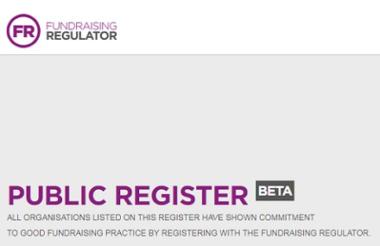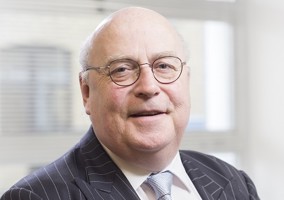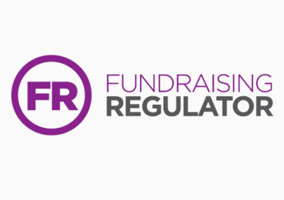The Fundraising Regulator has published a list of those who have registered with it, but at least four of the sector’s largest fundraising charities are not listed.
The Fundraising Regulator is funded by a levy on all charities spending more than £100,000 on fundraising, according to the Charity Commission annual return.
Charities spending over £100,000 cannot register with the regulator without paying the levy, although smaller charities – and those not registered with the Charity Commission – can register by paying a flat fee.
Civil Society News checked the list published by the regulator against a list of the hundred largest charities by fundraising income, published by Fundraising Magazine in 2017.
Five charities on that list are recorded on the Charity Commission website as having spent more than £100,000 on raising funds, but do not appear on the Fundraising Regulator website.
The five charities are:
- Ummah Welfare Trust, a Muslim disaster relief charity with a voluntary income of £23.8m and an expenditure on raising funds of £220,000
- United Synagogue, a charity serving the Jewish community, with a voluntary income of £26.4m and an expenditure on raising funds of £630,000
- The Vodafone Foundation, a grant-giver, with a voluntary income of £20.7m and an expenditure on raising funds of £310,000
- Muslim Aid, a disaster relief charity with a voluntary income of £14.2m and an expenditure on raising funds of £3.3m
- Harrow School, an independent school, with a voluntary income of £16.9m and an expenditure on raising funds of £4.4m
The regulator's spokesman said that United Synagogue had now paid and would be added to the list shortly. The other four charities are still in discussion over whether to pay.
The four charities have been contacted for comment, but none had responded at the time of publication.
The levy is voluntary, but the regulator has made it clear that it expects all fundraising charities to pay. Gerald Oppenheim, head of policy and communications at the levy, said last month that “you don’t have to like it, you just have to do it”.
However many charities have outright refused to pay the levy, and many others have either not responded or are still negotiating whether to pay. Yet others have said they do not believe they are eligible to pay. The regulator said most large fundraising organisations have now paid, but a handful have not.
Altogether, roughly a third of all charities invoiced have not paid, for one reason or another. The regulator said that most are smaller organisations.
Editor's note: There are several other charities which appeared on the Fundraising Magazine list, but not on the Fundraising Regulator's register. These are chiefly trusts and foundations with large voluntary income, which do not spend money on generating that income.
Update: 13 July
Harrow School has told Civil Society that the Harrow Development Trust is responsible for fundraising on behalf of the school and that it has paid the levy and appears on register.
Update: 14 July
A spokesman from the Fundraising Regulator said that as Harrow Development Trust is a subsidiary of the school it was satisfied with the situation and that Harrow Development Trust had "paid the levy in full in January 2017" and that it had amended its register to make this clear.
Separately Muslim Aid has said that it has now paid the levy.
Related articles












